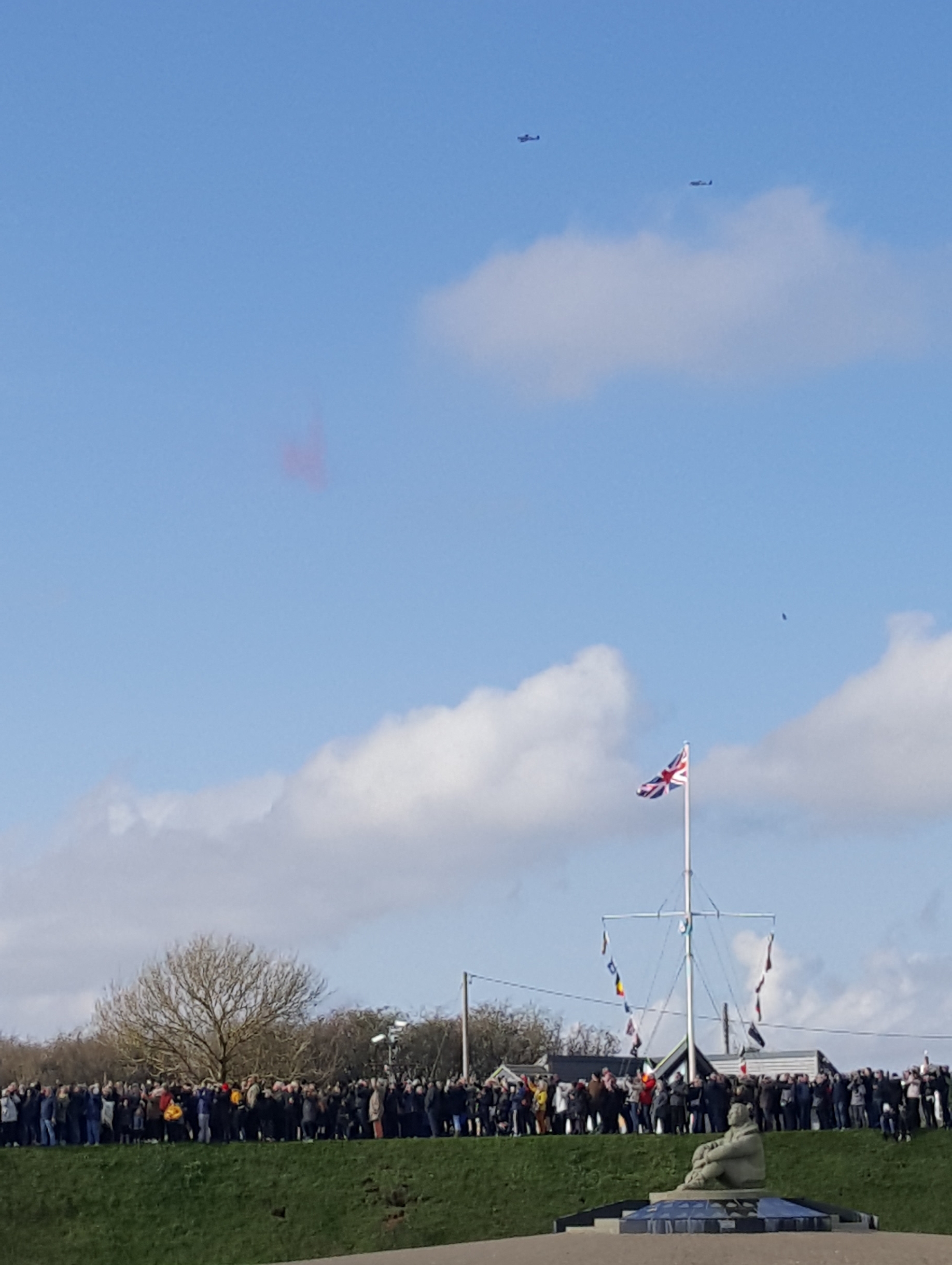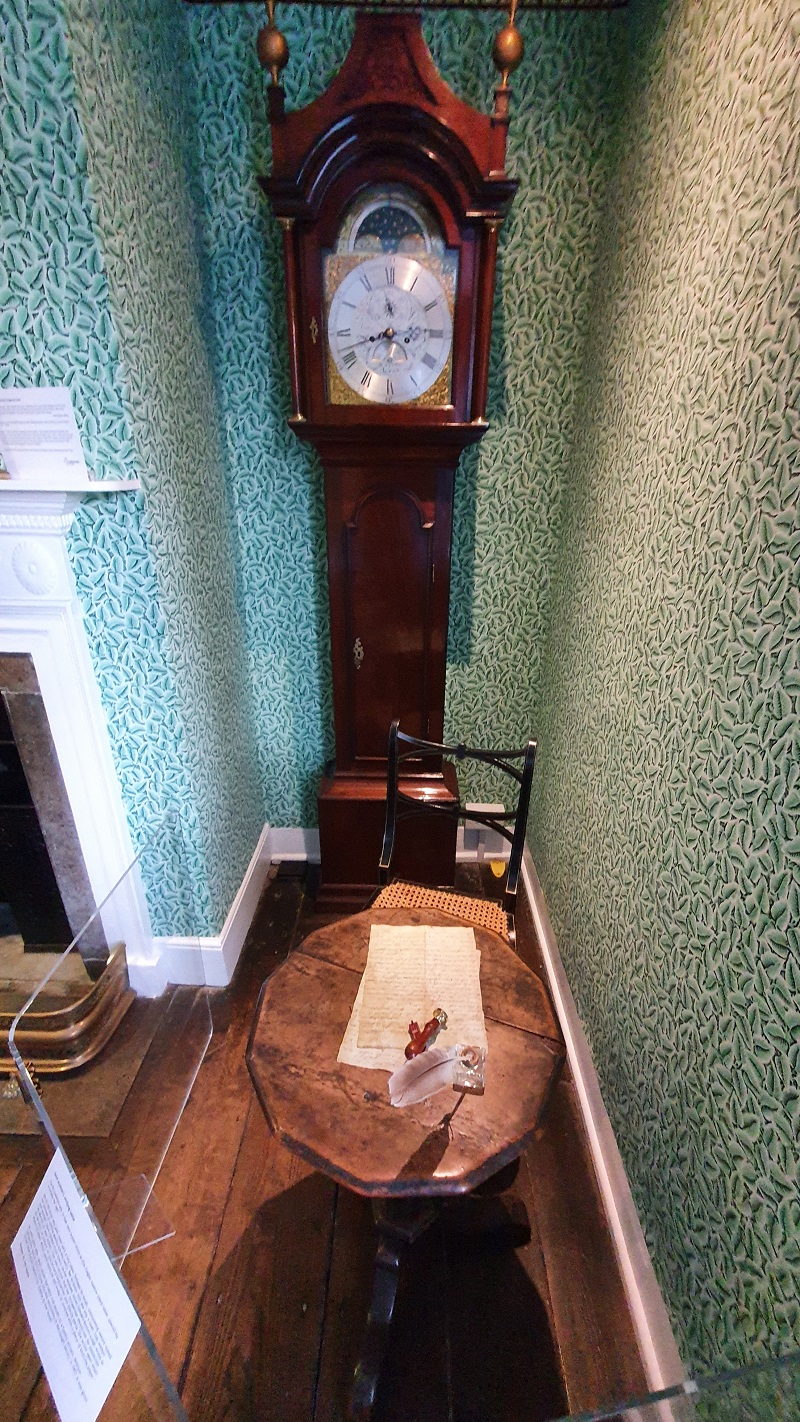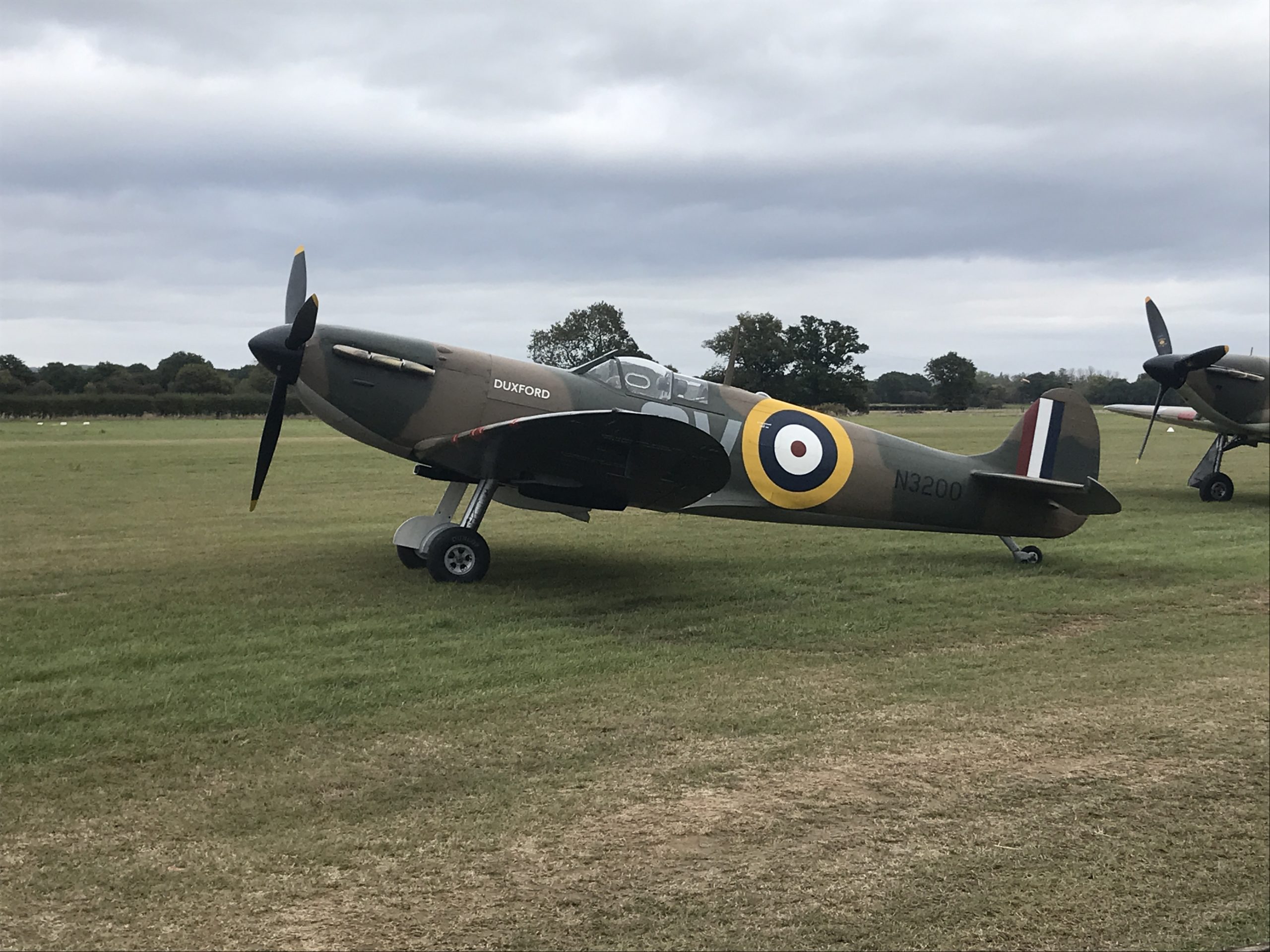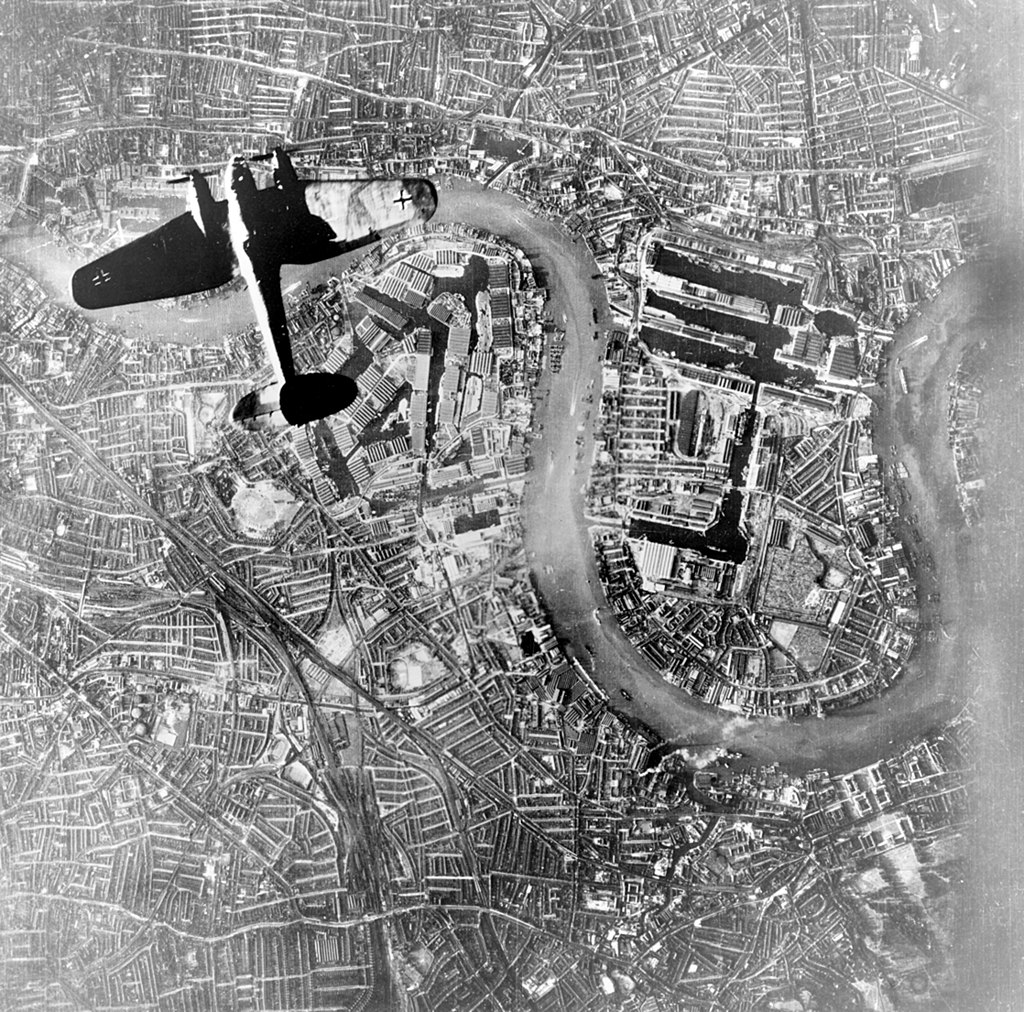Britain has a rich and diverse history that covers thousands of years. Is enough being done to ensure both good and bad aspects of the country’s past are preserved for future generations. Nicholas Garner investigates.
The people of Britain have a longstanding tradition of celebrating the past. The 1966 football world cup for example is particularly admired as one of the country's greatest achievements, probably because it is unlikely to happen again for a long time.
There’s also fireworks night in memory of Guy Fawkes who 400 years ago tried to blow up parliament, perhaps one of the country’s stranger rituals considering it is effectively celebrating a terrorist.
It is not just sporting accomplishments and failed government assassination attempts that we are fond of patting ourselves on the back for. 2020 was a milestone year for British events regarding the second world war, most notably the 75th anniversary of VE day in May, and in September we marked the 80th year since the end of the Battle of Britain.
The latter has cemented a place in British legend after Winston Churchill’s famous ‘Never was so much owed’ speech recognising the brave contribution of ‘the few’ – the pilots who defended England from the invading Germany forces.
80 years on, people up and down the country continue to commemorate the role that the RAF and Fleet Air Arm played in stopping Germany from expanding their regime of war and terror onto English soil.
"We consider that the Battle of Britain will become enshrined as history, not consigned to it.”
One advocate for preserving the past for the public’s benefit is Malcolm Triggs, marketing and PR adviser for the Capel-Le-Ferne Battle of Britain Memorial Trust near Folkestone, Kent. The memorial is set on the iconic White Cliffs overlooking the English Channel and is dedicated to those fighter pilots who risked or lost their lives all those years ago.
With the Battle of Britain observing its 80th anniversary this year, Malcom describes why it is still important to keep the conflict relevant in people’s minds.
“History has a lot to teach us, which is as good a reason as any to remember events, but it is also important to pay our respects to those who took part in those events, in this case shortening the war and changing history.
“Without the Battle of Britain, it would have been much more difficult to co-ordinate the retaking of mainland Europe in 1944”, Malcom continues.
The Battle of Britain predominantly took place over the skies of Kent and has a particular poignancy for those living in that part of the country, but that does not stop the memorial from attracting visitors from elsewhere.
“If anything, the public become increasingly receptive as the years go on. It is important to recognise that the Battle of Britain did not just occur in the South East.”
Malcolm believes there is no possibility that the Battle of Britain and World War Two as a whole will be relegated to history books.
“They are history. Events such as the Battle of Hastings, Agincourt, Waterloo, and Trafalgar are still commemorated. They are events that shaped the history of the country, as is the Battle of Britain. We consider that the Battle of Britain will become enshrined as history, not consigned to it.”
There is little doubt that something like World War Two and the many specific conflicts that occurred within it will be forgotten anytime soon. The Battle of Britain clearly still resonates with people, as they continue to visit memorials such as Capel-le-Ferne. But as the people who were alive during the war disappear over time, in fact there’s only one fighter pilot from ‘the few’ alive today, preserving the truth becomes more important than ever.
History in Britain has been predominantly told from the point of view of a white man. Typing ‘famous English historians’ on an internet search engine reveals a long list of white men and women, past and present, who have made a contribution to the field of study. It is only when that search is rephrased to ‘famous black English historians’ are there results on the notable black people who had an impact on British history.
Black people first arrived at England in the 16th century, entering a country populated almost exclusively by Caucasians since the Roman times. Their arrival saw the start of racism in this country – Elizabeth the First who ruled at that time wanted the ‘negroes and black Moors’ to be arrested and expelled from her kingdom.
400 years later, the history of black people in this country is poorly represented in education. Only 11% of GCSE history students in 2019 took a course that mentioned black history. Edexcel, the most popular GSCE syllabus exam board, has no history modules that refer to black people in Britain.
It is a problem derived by Britain focusing on the achievements of mainly white people: William Shakespeare, Charles Darwin, Florence Nightingale, kings and queens of England, the list goes on. How is it fair to underrepresent such a large group of people who have been in this country for so long?
“Once you eliminate the graphicness of what truly happened, its almost like diluting history.”
Joe Mazeli is a 21-year-old law student at the University of Surrey. He was born in Nigeria but has spent the last eight years living in England. As someone who joined the English education system as a young teenager, Joe gives his thoughts on how black history is taught in this country.
“British history shouldn’t only be told from one perspective. There are all these other moving parts that I feel are isolated. So it's almost like you're not part of the history, even though in reality you are”, Joe explained.
“So for instance, you have the Windrush generation where you have the British government who were calling: come work, come live, come and do this, come and do that. And the moment things weren't going right they were kicked out of the country. There has to be a spotlight on that.”
Joe believes the education system should be more open with schoolchildren about history, instead of just brushing over the troublesome aspects of it.
“Once you hear of the horrific things that happened [during the slave trade], then maybe people begin to empathise and understand why people want these stories told.
“Take what slave owners did to the slaves at one point, called ‘breaking them’. They would rape the men in front of the women just to kind of show dominance over them. Or in America, they fed little black babies to alligators or crocodiles just for fun and games. Horrific things like this, they aren’t told”, Joe stressed.
“Once you eliminate the graphicness of what truly happened, its almost like diluting history.”
Joe noticed during his school years that history was taught in a version that gave reason for the students to almost pity black people, like they were victims.
He said: “It needs to be acknowledged that the places conquered by the British Empire, were places that thrived prior to colonization. And it’s seems like British history is only taught from this moment when they came in and colonized. We're talking about people here and they’ve lost their histories.”
Joe questions what the best way to memorialise history is going forward. As an example, he mentions the removal of highly contentious King Leopold statues in Belgium. King Leopold ruled Belgium from 1865 to 1909 and during his time as monarch became founder of the Congo Free State in Africa; doing so in order to accumulate a vast fortune from collecting ivory and natural rubber. He set up a brutal administration over the native population who were forced to harvest the rubber – using torture and murder as enforcement methods. It led to the deaths of millions of Congolese people.
It is a similar story to the Edward Colston statue that was pulled down in Bristol during Black Lives Matter protests earlier this year. Colston was a merchant and parliamentarian during the Atlantic Slave Trade and oversaw the imprisonment and sale of thousands of African slaves, many of whom died during the long voyage to America.
They have both unquestionably caused a lot of human suffering by their actions, but should that mean their statues be removed? Could a case not be made for retaining the statues, as a reminder of their atrocities and that those sort of actions are unequivocally not tolerated in today’s society. Could the statues serve as a statement of how far we have progressed, or is it more beneficial to simply remove them as an act of respect for the thousands of people that endured pain and misery at the hands of these men.
Joe believes there is a benefit to keeping statues such as King Leopold’s in the public eye.
He said: “Obviously, these things should not be revered, but they should be remembered. If you just chuck it in a museum, only those who are interested in going to museums are going to see it and they will already be aware of these kind of things.
“But if you put them right in the middle, the heart of a city or town, and then if people want to remember part of it, or the whole thing that's up to them, but the fact that it's there is a reminder regardless.”
What helps to envisage historic times apart from statues are museums, books, paintings and all manners of evidence that points to what life was like. There are places such as Chawton House in Alton, Hampshire, which is the preserved house of famous English writer Jane Austen. Minus the security cameras and gift shop, every room is expertly set up to mimic what it was like 200 years ago. It even has the tiny wooden table where Jane sat and wrote her novels.
It will not be possible ever again to know what it was like to live in 1812, but slices of history such as Chawton House still serve a purpose in helping us remember what we came from.
An event from this year that can more easily help visualise history was the Headcorn Aerodrome ‘Battle of Britain’ Air show. A collection of period airplanes such as the Spitfire, Hurricane and Dakota put on a display demonstrating the vital role these aircraft performed during the war. The sight and sounds of wartime machinery whizzing across the sky does has the desired effect of sending you back in time – to when it was a daily occurrence and the fear of Nazi invasion was real.
The primary task of an event like this is to commemorate what was sacrificed during the Battle of Britain. It gives the opportunity to teach all ages – not just kids – about how different life was merely 75 years ago and the sacrifices that people made for their freedom.
Of course, there are still people alive to this day who grew up during and just after the war, who remember it vividly and had a massive impact on their lives growing up. It’s bizarre to think there are people among us who once looked up at the sky and saw the very real sight of the RAF battling German aircraft trying to invade England. Scarier still, they had to live with the fear of bombs reigning down on their homes.
“And the lesson I've always drawn is that the Battle of Britain points to Britain forming a successful coalition with other countries against the common enemy.”
The effect that the war had on this age group is explained by Goldsmiths University History Professor Richard Grayson, who has been interested in the subject since he was a young boy watching The Great Escape and making model aeroplanes.
“I was born 24 years after the war ended, and for people of my era, there was quite a one-dimensional view of the two world wars. I was told it was good against evil in which Britain stood alone, and that was manifested in the things you watched on television, the things we read, the toys we played with.
“For a lot of people and for people older than me, it is an important part of their identity, and as for the Battle of Britain, I think for the people who lived through it, it's hard to dispute the importance of it in the overall outcome of the war. And it is therefore something that people take some pride in”, he said.
But something that often goes unnoticed and unappreciated is the contribution from the commonwealth and other European countries who flew as fighter pilots during the Battle of Britain. Men from Australia, Canada, South Africa, France, and Poland among others joined the RAF to fend off the Germans.
Richard said: “There’s clearly a body of opinion which simply sees it as a story of Britain standing alone. Personally, I draw rather different conclusions from it. Just look at what the most successful Squadron in terms of 'kills', so called, in the Battle of Britain was – a Polish Squadron flying out of Northolt.
“The lesson I've always drawn is that the Battle of Britain points to Britain forming a successful coalition with other countries against the common enemy.”
Britain celebrated the 75th anniversary of VE day in May of this year – the date when the axis forces surrendered in Europe. Even though it was during the first nationwide lockdown caused by the Covid-19 pandemic, it did not stop the festivities and millions of Britons took to their front gardens to hold socially distanced street parties.
Richard believes that during these commemorative events, it’s important to be able to learn something from them.
“On VE day, lots of people were putting flags up, outside houses. I printed out flags of the allies, and we had British, American, French and Soviet flags up rather than just union flags. Because I think if you were to reflect on VE day, then the contribution of the red army is incredibly significant. How much of that was part of our VE day commemorations back in May? Very little.”
That same notion extends to the USA and the other nationalities that fought against Germany, who probably don’t get the recognition that they deserve on events like VE day.
It begs the question of whether people respect and understand what happened during those horrific 6 years of war, or did they simply jump at the idea of having a party during a national pandemic crisis?
A YouGov survey held on April 29th 2020 asked whether it was right or wrong to celebrate VE day, and it found that 40% of 18-24 year olds thought it was right, but a majority of 52% answered with ‘don’t know’.
It is a significant increase up from the next age bracket of 25-49 year olds, where only 27% answered with ‘don’t know’. Looking at the oldest people to respond in the 65+ bracket, an overwhelming 79% believed it was right to celebrate VE day. A minority of 11% wasn’t sure.
It is a substantial difference in opinion between the age groups; and it recalls back to the earlier point of younger people potentially being disassociated from the war by how long ago it was.
It also backs up the argument that Richard was making that a certain age group grew up believing Britain was this brilliant country, could do no wrong, and fought against the Germans on its own. It is hard to blame them when they can remember bombs falling in their streets and perhaps killing loved ones.
But is it becoming apparent that younger people do feel the war is not worth remembering, compared to older people who still feel winning the war is an important part of their identity?
“Do people commemorate the right why, often people get it wrong and things are excluded"
Richard is worried about how some members of society interpret the war.
“I really question some of the ways in which the Battle of Britain is used. There's no doubt that during the Brexit debate, people who wanted to leave the EU, drew certain lessons from the Second World War that I think are historically problematic. They used it as an argument for Britain not needing Europe and not being involved in Europe", he explained.
“Do people commemorate the right why, often people get it wrong and things are excluded. If you take a long view of this, then people have commemorated history in a very partial way.”
This goes beyond Britain as a country failing to recognise the contribution of Russia and USA during the war. The Prime Minister at the time, Winston Churchill, has been under a great deal of scrutiny recently – spurred by Black Lives Matter protests – due to his disparaging comments on Indian and Arab people, as well as arguably being at fault for the Bengal famine of 1943 where 3 million people died.
A statue of Churchill in London was defaced during Black Lives Matter protests in June this year, and although it has been vandalised before, it caused massive backlash from certain sectors of society, including the government who were very quick to condemn the actions.
Richard explains why it’s important not to rush to conclusions with a subject matter as delicate as Churchill, and how we can learn from his mistakes.
“Churchill is a really complex figure. And I think that people have to be, when calling for removal of his statue, have to be clear as to why. Why he's commemorated, why his memory is so important, and what is gained by simply removing a statue", he said.
“I think Churchill's views on race were not uncommon for the time. And I think it's difficult to blame him solely. I think it's the society that produced him that is at fault here. What you really need is a proper informed debate about Churchill, which goes beyond 1940 to 45.”
We often think of Churchill as this great leader who masterminded the victory against the Nazis, but with most things, it’s never that simple. He played a legendary role in corralling the country to fight the war and Britons should celebrate him for that, but he succumbed to racist attitudes of the time and got away with it because everyone else had similar views.
Therefore, he should be remembered for both: as a reminder of how far we’ve progressed as a society in terms of accepting all races and religions, and how we condemn those who don’t.
Britain is obviously going to have a biased opinion of itself when it comes to discussing World War Two. Even the younger generation, who might be able to look at things objectively, cannot take a truly neutral stance because they will never have faced prejudice as a result of being on the losing side. That is why when it comes to discussing what is the best way to remember history, the perspective of people who were once seen as the ‘enemy’ should be accounted for.
“During my school years, history in Germany was not taught, it was made!"
Mechtild Prangnell is an 83-year-old retired teacher, who first came to England in the 1950s after growing up in Germany and attending school as a young girl whilst the Nazis were still in power.
“At the beginning of my stay in England in 1957, I was always very careful of expressing any personal comments, as it was not long after the end of the war hostilities. Later on in my life in England I was sometimes made to feel uncomfortable.
“I do think Britain pays a lot of attention to the last two world wars. Of course the outstanding courage and victories must be honoured. Also the enormous suffering endured by the fighting forces and civil population must be remembered.”
Being on the winning side of such a monumental war, it is incredibly easy to overlook the similar struggles that the opposing sides went through, when we go to commemorate the Battle of Britain or World War Two or VE day. A vast majority of the soldiers were simply fighting because they had to.
“Germany cannot celebrate anything during those periods of time in history as it was a twice defeated nation full of misery with bombed out cities and millions of refugees, Mechtild said.
“During my school years 1942 to 1955 history in Germany was not taught, it was made! It was only in later years when the younger generations started to ask questions about the Nazi Regime, that people who lived during that time had to confront their history and come to terms with it, which on the whole they have managed to do, however painful it was.”
The point needs to be raised of how many people nowadays actually appreciate the thousands of German civilian deaths as a result of strategic air bombing. During the 1940-1941 Blitz, 43,000 people died across the country due to German bombing. Compare that to the reported 300,000 to 500,000 German civilian deaths throughout 1941-45 caused by bombing.
The city of Hamburg was truly annihilated by allied bombing in just one week of July 1943. 58,000 civilians were killed with 180,000 injured, and due to the dry weather the relentless bombing caused a 460-metre-high firestorm that ravaged the city, all whilst the bombs continued to fall.
Something like this should be getting far more attention and recognition during our periods of commemoration, alongside everything that Britain went through. It is similar in scope to the atomic bombing of Japan; supposedly a necessary evil in order to shorten the war and an example of how truly horrific war can be.
That is why museums, statues, libraries, monuments, historians and most importantly a democratic, free society are the most vital pieces in keeping the legacy of the war, and history in general, alive.




